IF YOU ARE A LONG-TIME FOLLOWER of our journals—like back to 2011—you might recall our fascination with the unique architectural style of Antoni Gaudi. On our first visit to Barcelona we were able to track down 11 of his buildings in our “Great Gaudi Treasure Hunt.”

Sagrada Familia in 2011—more construction cranes than spires
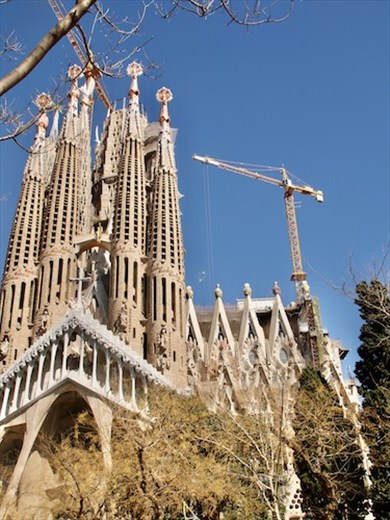
Sagrada Familia 2023—still not finished!
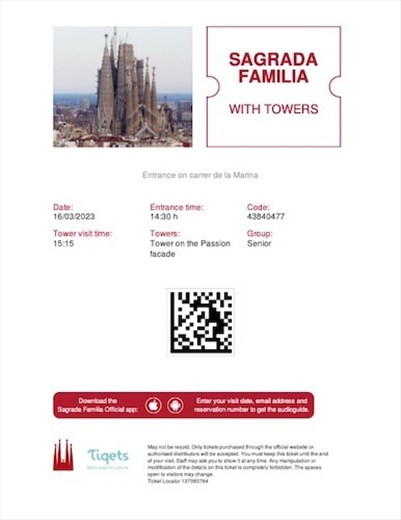
No tickie, no shirtie
The one building we missed back then, Gaudi’s magnum opus, is the Basilica de Sagrada Familia. We were travel neophytes back then and never considered that we would need reservations or face a three-hour wait to get inside. Our memories of our first visit to Sagrada Familia are of lines stretching around the block and views of a towering structure surrounded by cranes and scaffolding. Older and wiser now, we returned today to visit the Basilica itself and the Passion Tower—with tickets!
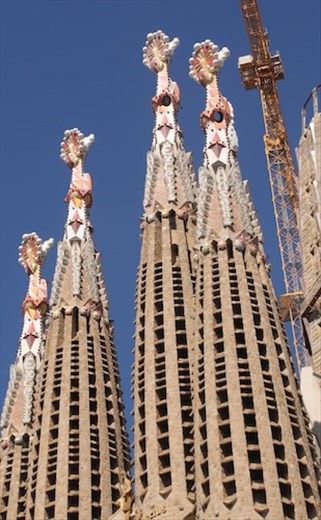
4 of (someday) 16 spires

The Crowning Glory
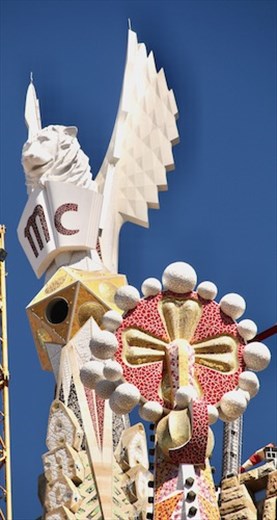
Spire for the Evangelist Mark
Although Sagrada Familia will always be associated with Gaudi, he wasn’t the first architect—Gaudi took over in 1883 when Francisco del Villar resigned. Gaudi’s plans were for a big honkin’ cathedral-sized structure. His original designs called for sixteen spires representing the twelve Apostles, four Evangelists and the Virgin Mary. Jesus Christ, the tallest of all at 172.5 meters would be less than the height of Montjuïc—he believed his creation should not surpass God’s.
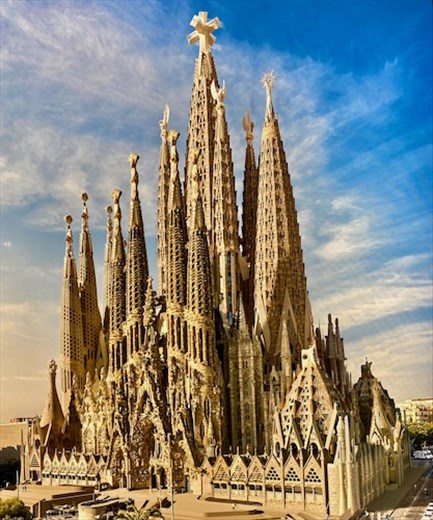
Artist conception of the finished product...as if!!!!
Gaudi’s style has been described with phrases such as “Gothic and curvilinear Art Nouveau” and other esoteric words as oenophiles use for a new vintage. The exterior of Sagrada Familia reminds me of the drippy sand castles we made at the Jersey Shore; but what do I know? We also read that there are no 90° angles and few straight lines either inside or outside Sagrada Familia. While our sand castles came and disappeared with the next tide—after nearly a century Sagrada Familia is only 75% finished!

What the cognoscenti say about Gaudi

A drippy Sandcastle
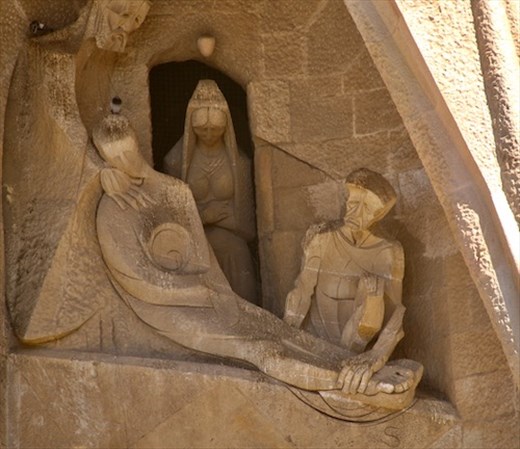
One of Subirachs’ angular geometric statues
Gaudi knew Sagrada Familia would not be finished in his lifetime. “My client is not in a hurry,” he said. He didn’t know, however, that he would be struck and killed by a streetcar on his way to work in 1926. Nor did he know that his failure to obtain a building permit would accrue a fine of €36 million that the foundation will be paying off in the next ten years. Oops!

75% Complete and €36,000,000 in arrears
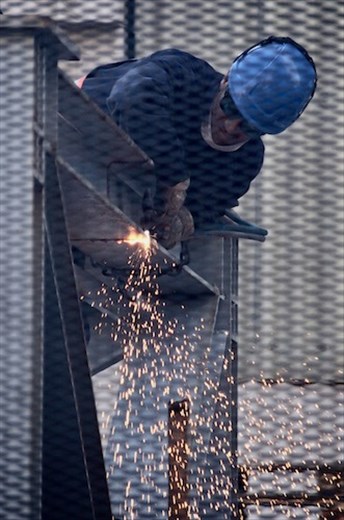
Technology that didn't exist in Gaudi's day
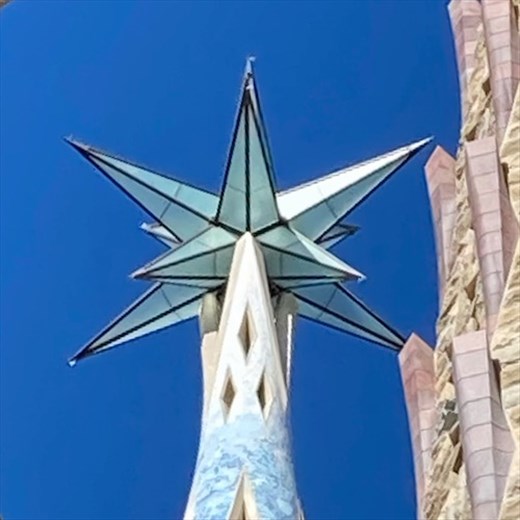
How was Gaudi gonna get this puppy up there?
We arrived early to give us time to walk around the exterior. Protective nets cover some of the work in progress and a couple of cranes are still lifting who-knows-what high into the air. Which makes me wonder what Gaudi was thinking—or smoking. How did he expect to raise a 25-foot 5½ ton star 135 meters? He’s probably turning in his crypt (the only one interred in Sagrada Familia, btw) thinking about Josep Maria Subirachs’ angular geometric statues sculptures on the facade.

A well-deserved break

Finally it's our turn to enter Sagrada Familia
It was a three-mile walk from our apartment to Sagrada and another mile or so around the perimeter and we deserved a break. Hot brownies with home-made helado! Yummy. Now we were ready to tackle the interior of Sagrada Familia.
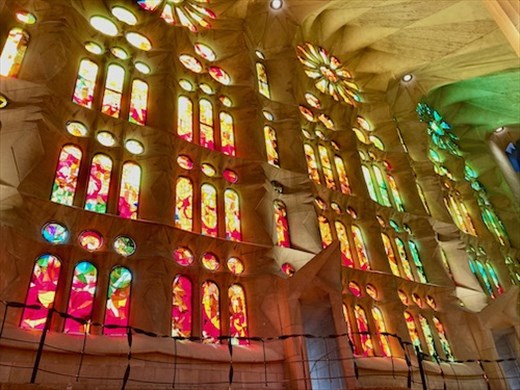
Wall-to-wall Stained Glass

More light enters in the top
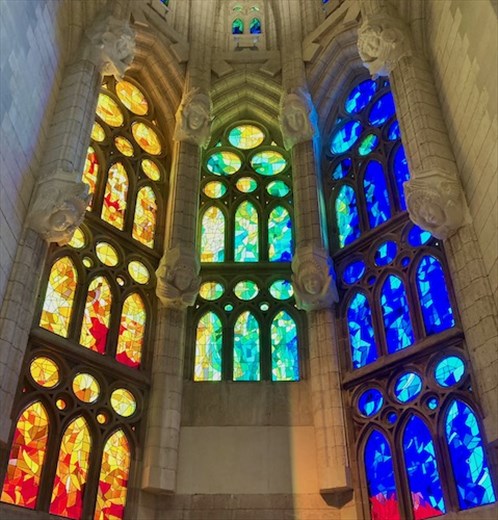
Red, Green and Blue Stained Glass...
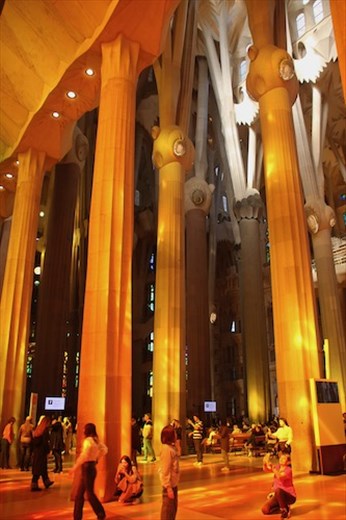
...Casts Light on Columns, Floor and people
The first thing I noticed upon entering Sagrada Familia was the light. Stained glass predominates; entire walls floor-to-ceiling, this one red, that one blue and another green. Gaudi designed it so that the uppermost panels let in the most light, the lower panes more opaque.
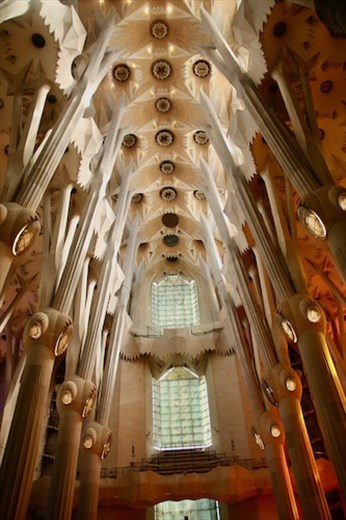
Forty-five meters to the ceiling
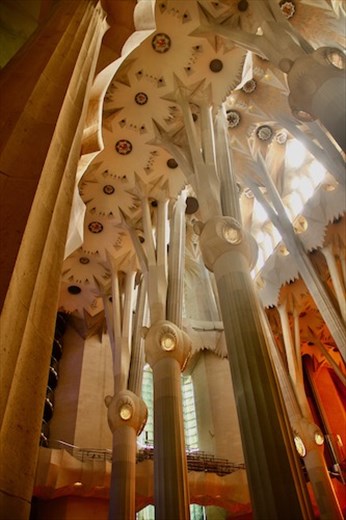
Sagrada Familia Nave
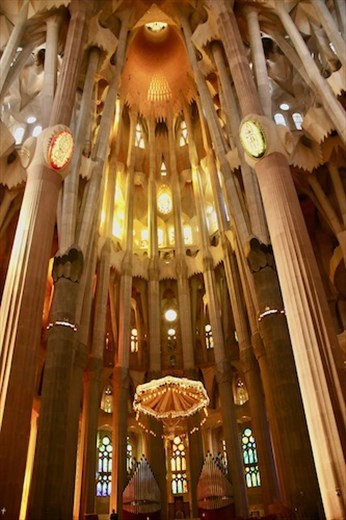
The Apse of Sagrada Familia
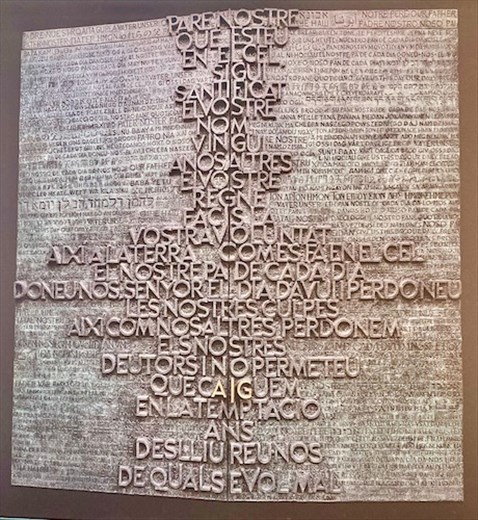
Give us this day our daily bread...said 49 ways
The pillars resemble tree trunks reaching up 15, 30 and 45 meters. Light streaming through turns the pillars different colors. Even people turn different colors as they move around. This must be what it’s like to be inside a kaleidoscope. Everywhere you turned there was something new, something you had missed. Like the Lord’s Prayer in Catalan and 49 other languages, including Wolof!

Looking down from the Passion Tower
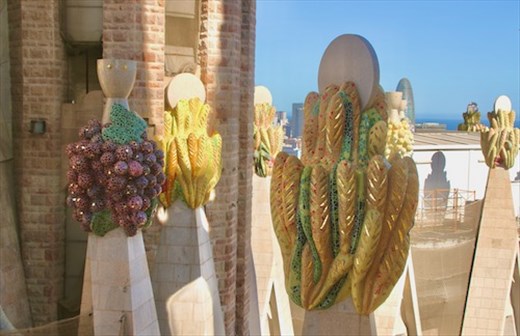
Don't know what Gaudi called them—I'll go with doodads

Statue seen from inside the Passion Tower
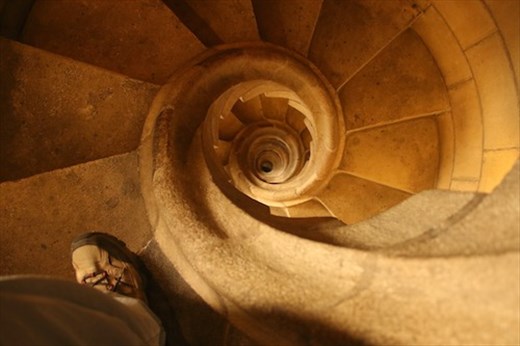
Watch your step going down

Only 3-miles to go from the bottom
Our tickets also gave access to the Passion Tower. An elevator speeds you 90 meters up for views of the city and, more importantly, a closer look at some of the colorful organic doodads and statues on the roof. The walk down 400+ spiraling stairs with the wind blowing in your face was the most fun. Only another three-miles to home!